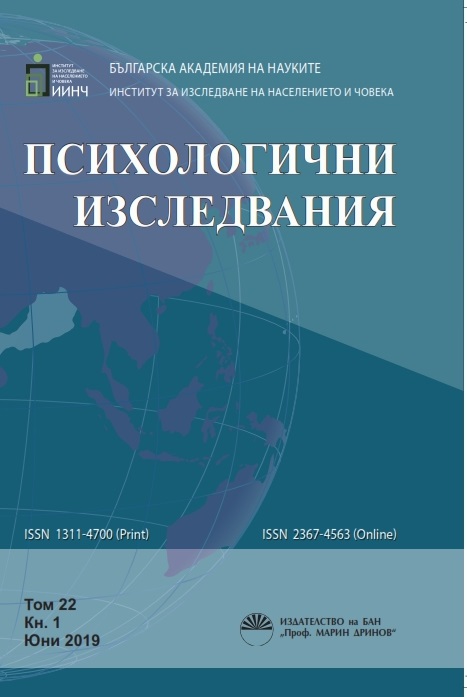Bulgarian Adaptation of Early Childhood Acceptance- Rejection Questionnaire (ECPARQ): A Pilot Study of the Scale Structure
Bulgarian Adaptation of Early Childhood Acceptance- Rejection Questionnaire (ECPARQ): A Pilot Study of the Scale Structure
Author(s): Nadia Koltcheva, Liubomir DjalevSubject(s): Social Sciences, Psychology
Published by: Институт за изследване на населението и човека - Българска академия на науките
Keywords: parental acceptance-rejection; Early Childhood Acceptance-Rejection Questionnaire (ECPARQ); confirmatory factor analysis; exploratory factor analysis; factor structure; reliability.
Summary/Abstract: The aim of this article is to examine the psychometric properties of the Bulgarian adaptation of Early Childhood Acceptance-Rejection Questionnaire (ECPARQ). It is one of the new instruments, developed within the framework of IPAR Theory and designed to measure preschool children’s perceptions of their parent’s acceptance-rejection behavior. The measure has two identical versions – for the mother and the father. The sample consists of 254 preschool children – 121 boys (47.64% of all) and 133 girls (52.36%), agerange 43-92 month with М=59.28, SD = 11.27 (3.58 - 7.67 years, M = 4.94, SD = 0.94). 204 of the participants are Bulgarians (80.32%), 37 Roma children (14.57%), 1 Arab and 1 Turkish child (0.39%). For 11 children the ethnicity was not registered. The participants live in different towns and cities in Bulgaria. The translation of the items we done according to the accepted requirements for psychological instruments. As a preliminary study of the factor structure of the questionnaire adaptations, two separate confirmatory factor analyses were performed to verify the adequacy of two possible measurement models, based on literary sources: one- and four-factor model. The test statistics showed that none of the two appeared to be adequate. In order to reveal more adequate latent structures, two follow-up exploratory factor analyses (Principal axis factoring) were carried out. As a method for determining the optimal number of factors, Cattell’s scree test, combined with parallel analysis were applied. A very clear two-factor structure was obtained for both Mother and Father versions. The study of orthogonality of the factors, using the direct oblimin method with Kaiser Normalization, showed that in both versions they are negatively, but poorly correlated (r = -0.16 for the Mother version and r = -0.20 for the Father version), so we accepted to treat the factors as orthogonal. Because of the pronounced parallelism of the factor structures of the two versions, we labelled the factors as “Parental acceptance” and “Parental rejection”. Reliability analyses revealed acceptable levels of reliability coefficients in both versions. Cronbach’s alphas for the Mother version were 0.70 (Acceptance) and 0.83 (Rejection). For the Father version, corresponding values were 0.75 and 0.84. The Bulgarian adaptations do not replicate the original four-factor structure of the questionnaire. The results confirm the two-factor structure, which, in a sense, is better aligned with the concept of the „Warmth“ dimension in IPAR Theory.
Journal: Психологични изследвания
- Issue Year: 22/2019
- Issue No: 1
- Page Range: 80-101
- Page Count: 22
- Language: English

